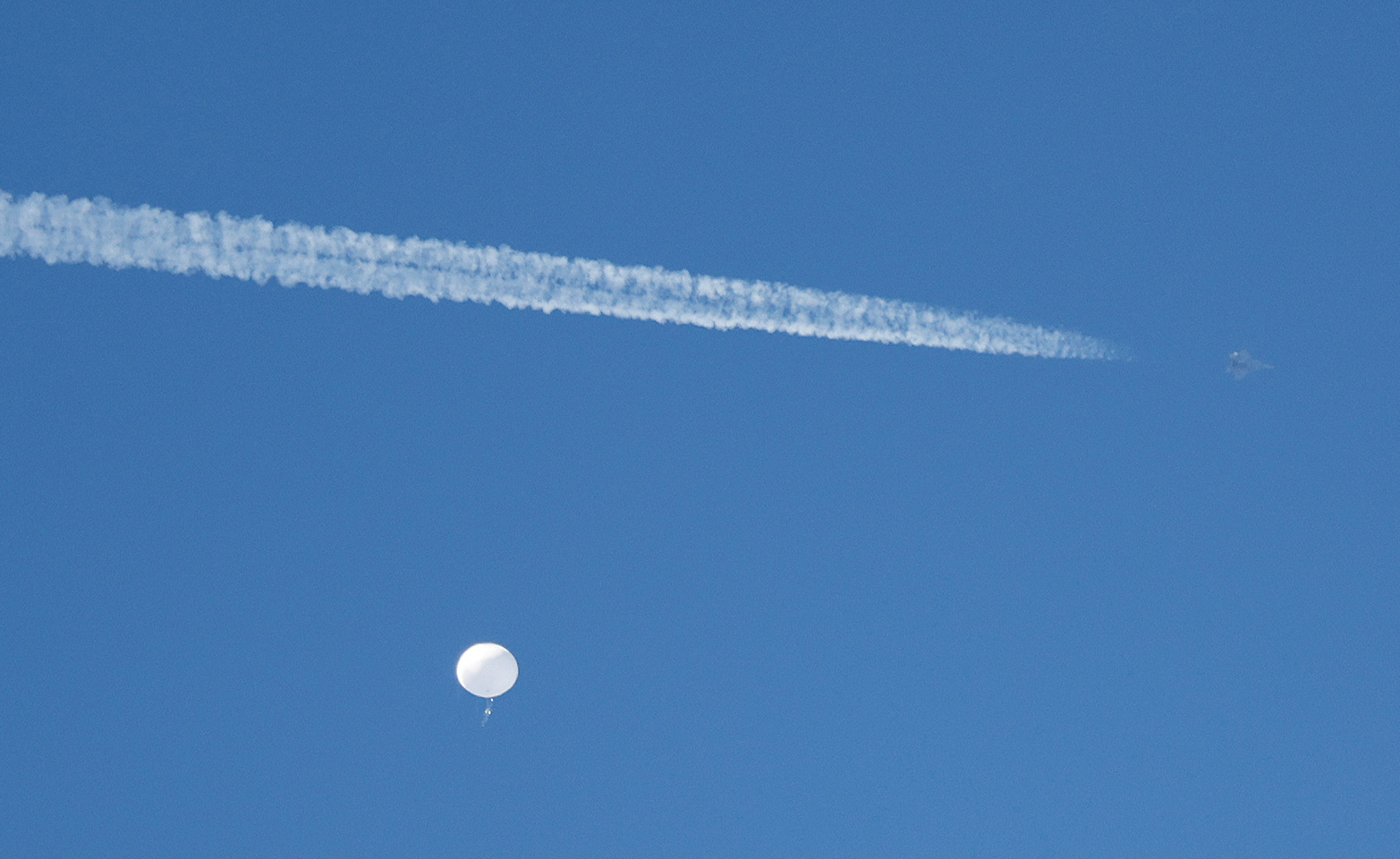Chinese surveillance balloons during Trump, early Biden admin not spotted by NORAD, commander says
"That's a domain awareness gap that we have to figure out," an official said.
Previous Chinese surveillance balloon incidents that occurred during the Trump administration and early under the Biden administration were not spotted by NORAD at the time, Air Force Gen. Glen VanHerck, commander of the North American Aerospace Defense Command and U.S. Northern Command, told reporters Monday.
"We did not detect those threats. And that's a domain awareness gap that we have to figure out," VanHerck said.
VanHerck said that U.S. intelligence made NORAD aware of the threat posed by the surveillance balloons after the fact through "additional means of collection and made us aware of those balloons that were previously approaching North America or transit in North America."
The military commander would not specify what techniques were employed by U.S. intelligence to determine the capabilities of the balloons.
VanHerck also provided a new insight as to why the balloon was not shot down as it approached Alaska in late January, noting that his "assessment that this balloon did not present a physical military threat to North America and therefore, I could not take immediate action because it was not demonstrating a hostile act or hostile intent.”
Senior U.S. officials have described China as having built up a fleet of surveillance balloons that have crossed into sovereign airspace over five continents.
U.S. officials had told ABC News of prior incursions near Hawaii and Guam last February, and in the wake of the balloon being shot down off the South Carolina coast this Saturday, senior administration officials said that there had also been three additional incursions during the Trump administration.
VanHerck's acknowledgement that NORAD had not spotted those incursions would help explain why several former senior Trump to previous brief incursions denied having been aware of any balloon incursions.

During the audio briefing with reporters, VanHerck said that allowing the balloon to transit across the United States provided "a potential opportunity for us to collect Intel where we had gaps on prior balloons."
"This gave us the opportunity to assess what they were actually doing, what kind of capabilities existed on the balloon, what kind of transmission capabilities existed. And I think you'll see in the future that that timeframe was well worth its value to collect over," said VanHerck.
The general would not describe how that intelligence was gathered while the balloon was in flight, making only a vague reference to the U.S. using "multiple capabilities to ensure we collected and utilized the opportunity to close Intel gaps."
Mitigation efforts were taken to minimize intelligence collection as the balloon flew over Malmstrom AFB in Montana and Offutt AFB in Nebraska, according to VanHerck
"Just because we had the time to do that. And we also had the time to put together an effort of our own to learn about this particular balloon and what its capabilities are, and we're going to get more information from the recovery," John Kirby, the National Security Council's coordinator for strategic communications, said in a separate briefing with reporters.
VanHerck described the balloon itself as being 200 feet tall carrying a payload of intelligence-gathering equipment that weighed "a couple thousand pounds," which he compared in size and length to a regional passenger jet.
Kirby described the balloon as having a limited ability to maneuver using propellers and a rudder though he added that "the most important navigational vector was the jet stream itself, the winds at such a high altitude.
The recovery operation for the remnants of the balloon and its payload is being carried out six miles off the coast of South Carolina in U.S. territorial waters in an area described as being 1,500 yards by 1,500 yards.
U.S. Navy and Coast Guard ships are at the scene and have already recovered debris that was floating on the surface of the water according to Kirby.
While rough waters limited the recovery efforts by divers on Sunday, a Navy salvage ship is expected to be at the debris location in coming days.




